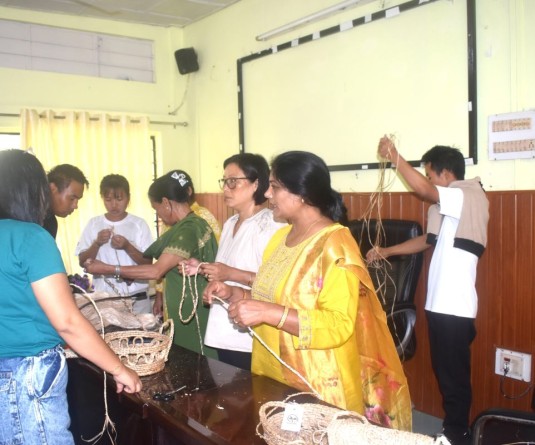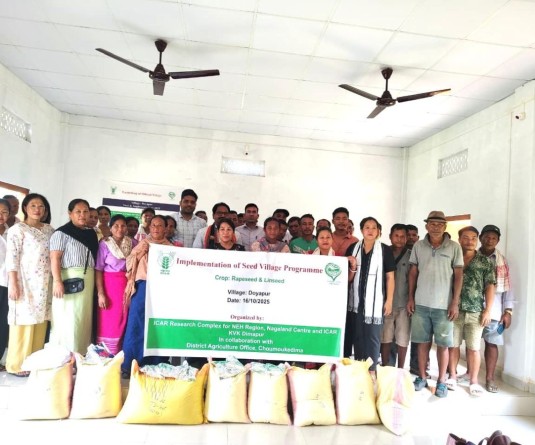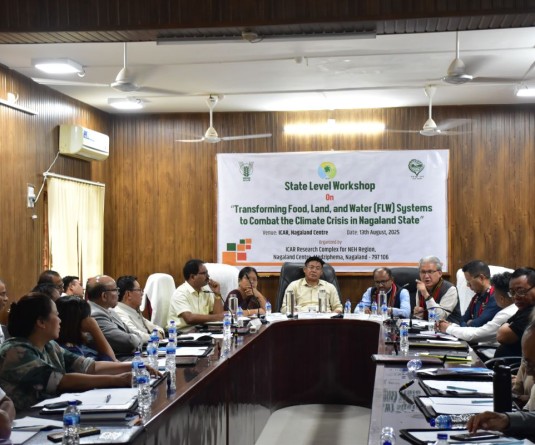
Background: Farmers in Peren district cultivate paddy, maize, and oilseeds, using mainly farm-saved seeds. These seeds along with grains are mostly stored in traditional methods that may not protect against rain and humidity.
Need Identified: Grains and seeds stored in barns face significant losses due to pests and animals. Contaminated grains are also sold at lower prices due to reduced nutrition and taste. Thus there was a great need for a cost-effective and easy-to-manage storage system. Grain Pro bags, though effective, are costly and not readily available in Nagaland.
Intervention: Hermetic Save Grain EVOH bags were identified as a suitable, cost-effective solution for farmers, providing quality storage and reducing post-harvest losses. Hermetic bags, also known as barrier bags, are airtight and moisture-resistant, designed to protect contents from air, moisture, and pests. They are commonly used for long-term storage of food, pharmaceuticals, and electronics. In grain storage, they create a controlled atmosphere, preventing contamination.
Technology:
1. Sealing from outside atmosphere: Hermetic bags prevent moisture and oxygen intake, protecting grains from pests.
2. Anaerobic Storage System: The bags create an oxygen-deficient and CO2-enriched environment due to respiration within the bag.
Methodology: The grains or seeds are cleaned and filled in the hermetic bags with minimal air inside.
Implementation: Progressive farmers after training and demonstrations by KVK Peren adopted hermetic bags made of multilayered plastic with airtight seals. They cleaned and dried their harvested rice, pulses, oilseeds and maize, filled the bags (each holding approximately 50 kg), and sealed them tightly. The bags were stored in a cool, dry room away from sunlight.
Monitoring and Results: Over 8-12 months, the farmers observed no pest infestations, minimal moisture absorption, no foul odor, and the grains remained fresh and insect-free.
Economic Impact: The grain yield was saved by 16% due to reduced losses, while allowing them to sell high-quality grains at better prices.
Community Impact: Farmers shared their success with neighboring farmers and adoption of hermetic bags by other farmers improved food security in the community. Reduced post-harvest losses benefited both farmers and consumers.
Conclusion: Farmers learned that hermetic bags create an airtight environment, preventing oxygen and moisture from reaching stored grains. This experience shows that hermetic bags are a practical solution for small-scale farmers, safeguarding grains and contributing to sustainable agriculture in the village.
Acknowledgement: Hermetic bags provided by ICAR-IIAB, Ranchi to KVK Peren through their NEH programme is duly acknowledged.
Patu K Zeliang, Z James Kikon, L Babita Devi, KL Meena
KVK Peren, ICAR Research Complex for NER, Nagaland Centre






